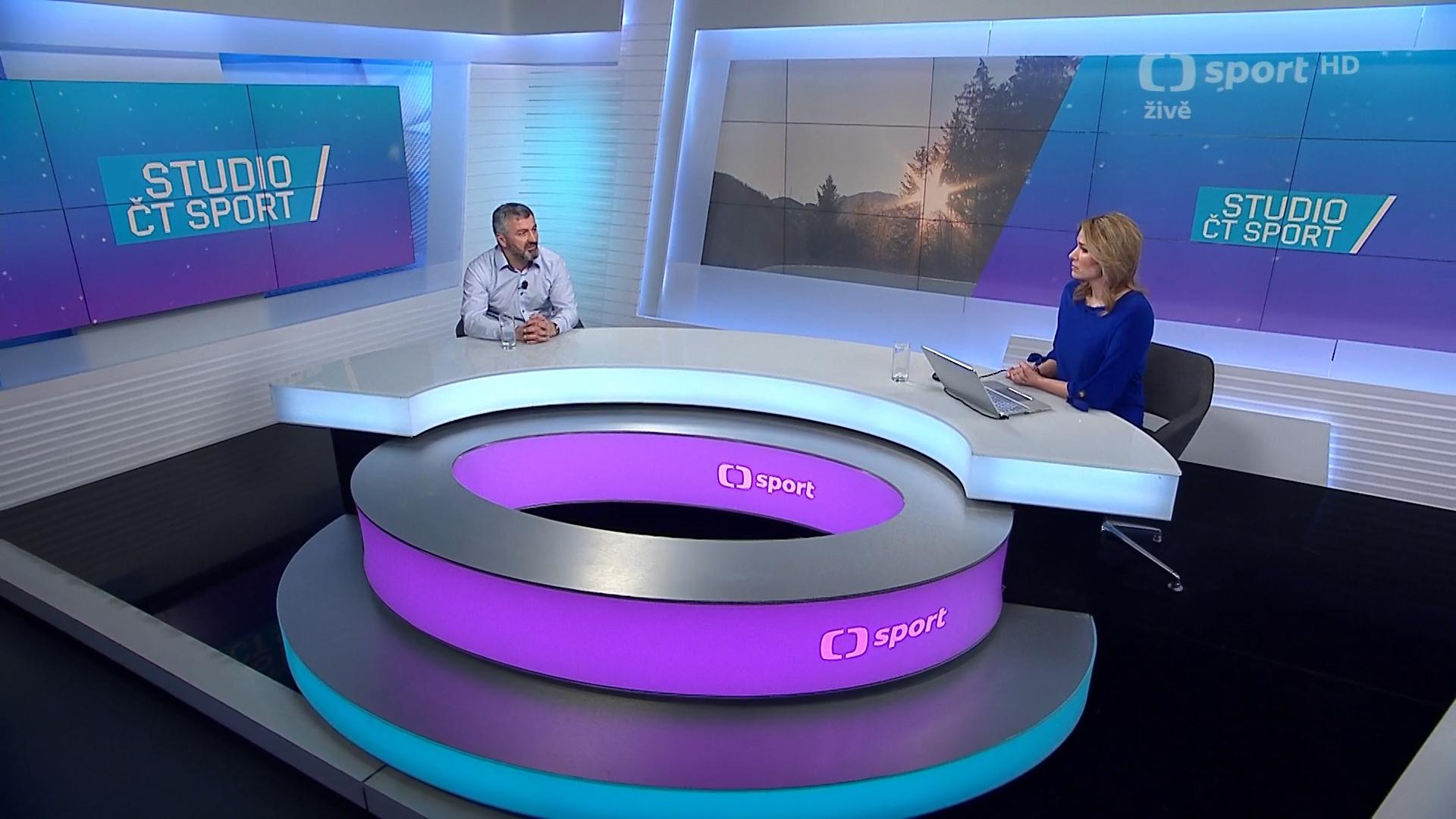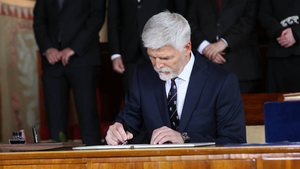Czech TV stations vanish from Slovak operators due to licensing

Slovak viewers are losing access to Czech television stations as they are being removed from the offerings of local operators. Most recently, the sports channel ČT sport stopped broadcasting in Slovakia, much to the dismay of viewers and companies like UPC Slovakia.
Operators had no choice but to comply with the directive from Czech Television (ČT), as they are not allowed to distribute the channel in Slovakia without its consent. Slovaks have been watching the station, funded by Czech viewers, for many years. "Czech Television stations have been part of Slovak operators' offerings for years, and ČT has never taken any steps to shut them down," UPC Slovakia said in February.
"ČT has not provided consent to any Slovak operator," said ČT spokesperson Vendula Krejčová. The sports channel had to disappear from all offerings. "The content on ČT sport is acquired by Czech Television exclusively with territorial restrictions for the Czech Republic, and its broadcasting abroad is not possible," the spokesperson pointed out.
The Czech public broadcaster's sports channel had two advantages for Slovaks. Firstly, the broadcasts are easily understandable due to the linguistic proximity, and secondly, Czech Television still has a decent collection of significant sports events. For example, the May Ice Hockey World Championship will be on ČT sport in the Czech Republic, while in Slovakia, it will be broadcast for the first time by the commercial sports channel Joj Šport.
It is these lucrative rights to sports events that motivate television stations to ensure that no one is threatening their investment by offering the same content in comparable quality and scope.
The Slovak Antimonopoly Office also dealt with the situation. It received several complaints about the disappearance of Czech stations from operators' offerings. And if they do not disappear, their broadcasting in Slovakia is to be variously restricted at times when they are running content for which Slovak stations also have rights.
The largest Slovak commercial stations pressured operators to restrict access to Czech stations for licensing reasons when they are broadcasting specific films and series.
"It is important to emphasize that Slovak broadcasters did not request a restriction on the retransmission of all Czech television stations or their entire broadcasting; it concerned only a certain part of the broadcasting of some Czech television stations. Broadcasters justified this by exclusive distribution, resp. territorial exclusivity granted to them by the owners of the rights, resp. licenses to the broadcast titles for the territory of the Slovak Republic," the office described.
The office noted that the issue has multiple levels. "The first level is the owners of the rights or licenses to the broadcast titles (i.e., foreign film studios or holders of licenses for specific broadcast titles). They sell their rights to television broadcasters (in this case, Slovak ones) for a fee. Subsequently, the television stations of the broadcasters are part of the offerings of operators," it explained in a press release.
Rights owners typically sell them to broadcasters for the territory of a specific country, either exclusively or non-exclusively. Exclusive distribution (territorial exclusivity) is a common practice and complies with European competition regulations. The office did not find any contractual conditions that would be somehow non-standard during its investigation.
The Antimonopoly Office acknowledged that when a foreign station's broadcasting is received in the territory of a state, licensing rights must be settled. In practice, there are two solutions. One is to create a modified version of Czech programs for Slovak territory, where programs licensed for Slovak stations are not included.
This path has been taken, for example, by TV Nova and TV Prima, which have prepared international versions called Nova International and Prima Plus for Slovak territory. Prima is also preparing modified versions of other programs; Slovaks can look forward to Prima Cool SK and Prima Love SK this year as well.
The second solution is for the station to secure rights for both the Czech and Slovak markets. Slovak viewers can watch the Nova Sport 5 channel, which broadcasts Formula 1, in this way. It is offered by Slovak Skylink, for example, and is also accessible to registered subscribers via streaming service Voyo. The Canal+ Sport channel with Premier League football broadcasts is also intended for the Czech Republic and Slovakia.
The office admitted that there may indeed be cases where Czech televisions still broadcast programs for which Slovak stations have licenses in Slovakia. However, according to the office, such disputes should be resolved by the court with regard to copyright rather than competition law violations.
"Despite this, the Antimonopoly Office does not perceive positively the possible en bloc termination of the distribution of foreign, in this case Czech, television stations on the territory of the Slovak Republic. It may result in a reduction of choice for the consumer/viewer, at least in terms of programs that do not have licensing restrictions for a certain territory (own children's programs, news reports, entertainment programs, etc.)," the office fears.
"Terminating the entire broadcasting of a foreign television station is not desirable and cannot be enforced against operators either," the officials warned. "Switching off a specific copyrighted work is a technical, legal, and economic issue, and terminating broadcasting en bloc for the protection of copyrights thus appears disproportionate and unjustified," the official statement adds.
The Slovak office recommended that operators consider what other options they have to protect copyrights besides shutting down an entire television station. "The complete termination of the distribution of a certain Czech television station reduces the possibility of choice for the consumer, which the Antimonopoly Office does not perceive positively," it reiterated.
The same view is shared by Slovak UPC, which already expressed concern in its February statement about the deterioration of Czech-Slovak relations due to "the interests of some broadcasters and individuals on both sides of the Morava River."
"The impossibility of watching Czech stations for viewers in Slovakia confirms this, and ČT's challenge is also an example of the gradual restriction of access to cultural, artistic, sports, educational, or entertainment events shared through television as the most mass communication medium," UPC wrote.
The entire situation only concerns the offerings of pay-TV providers, not the cross-border overlaps of terrestrial broadcasting. Because these operators compile the channel offerings in their tariffs, they must respect the financial and contractual conditions for the distribution of the stations they are interested in. They are not allowed to offer channels without the consent of the operators, which is why they eventually removed ČT sport, albeit with gritted teeth.
For Slovak operators to avoid shutting down entire stations, they would have to agree with Czech broadcasters, for example, that they can intervene to interrupt distribution or overlay the image or mute the sound if necessary.
The current Slovak media law contains a provision on signal integrity. It explicitly prohibits operators and signal distributors from modifying the content or technology of the transmitted program services or interrupting or overlaying them. The only exception is if they have prior permission from the broadcaster to do so.
Slovak operators now mostly offer Czech public service programs ČT1, ČT2, ČT24, and ČT :D / ČT art. Commercial stations available include TV Seznam, TV Barrandov, or Prima's thematic channels. They also offer Nova International and Prima Plus.




